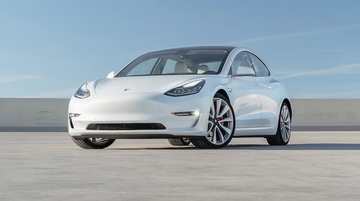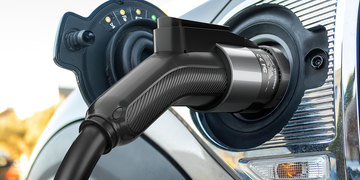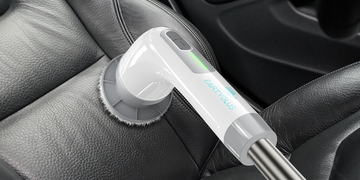How Much Does it Cost to Charge a Tesla? As the automotive landscape undergoes a transformative shift towards sustainable energy, electric vehicles (EVs) are taking center stage. Among the leading players in the EV market is Tesla, known for its cutting-edge technology and high-performance electric cars. One common question among potential Tesla owners is: How much does it cost to charge a Tesla? In this article, we will explore the factors influencing the cost of charging a Tesla and provide insights into the economics of owning and operating these innovative electric vehicles.
Understanding Tesla Charging Basics:
Before delving into the costs, it's essential to understand the two primary charging methods for Tesla vehicles:
Home Charging (Tesla Wall Connector or NEMA 14-50 Outlet): This is the most common charging method for Tesla owners. Home charging allows for the convenience of overnight charging, ensuring your Tesla is ready to roll every morning.
Supercharger Network: Tesla has a proprietary network of Supercharger stations strategically located for long-distance travel. These stations provide rapid charging, allowing Tesla owners to replenish their battery quickly during road trips.
Charging Costs at Home:
The cost of charging a Tesla at home depends on the electricity rate in your area, the charging method, and the efficiency of your Tesla model. On average, Tesla vehicles have an efficiency of around 3 to 4 miles per kilowatt-hour (kWh). Using this efficiency metric, you can calculate the cost by multiplying the kWh needed by your local electricity rate.
For example, if your Tesla Model 3 has an efficiency of 4 miles/kWh and you need to charge 300 miles, you would require 75 kWh (300 miles / 4 miles per kWh). If your electricity rate is $0.12 per kWh, the cost would be $9.00 (75 kWh * $0.12).
Supercharger Costs:
The cost of using Tesla Superchargers is different from home charging and is typically based on the kWh consumed. Tesla Supercharger rates vary by location and can be checked through the Tesla app or website. It's important to note that Supercharger rates may be higher than home charging rates, reflecting the convenience and speed of the service.
Factors Influencing Charging Costs:
Several factors can influence the cost of charging a Tesla, including regional electricity rates, time of day charging, and any additional fees associated with Supercharger usage. Tesla owners can leverage time-of-use electricity plans to charge their vehicles during off-peak hours, potentially reducing charging costs.
Government Incentives:
In some regions, government incentives may be available to offset the costs of installing home charging infrastructure. These incentives can contribute to making home charging more economically attractive for Tesla owners.
Total Cost of Ownership Considerations:
While charging costs are a crucial aspect of owning an EV, it's essential to consider the total cost of ownership. Factors such as maintenance, insurance, and potential incentives can impact the overall economics of owning a Tesla.

How Tesla vehicles compare to other EVs
On average, Tesla models consume approximately 34 kWh of electricity per 100 miles, which equates to 34,000 kWh over 100,000 miles or a maximum of 170,000 kWh over the car's lifespan. Thanks to the Tesla battery's charging efficiency of around 94% and discharge efficiency of 90%, the amount of electricity required is notably low. So, Tesla owners need not worry about their electricity rates ballooning.
According to the national average cost of electricity, charging your Tesla comes up to only $13.96, which is approximately $0.05 per mile for all Tesla models.
Following the numbers from the previous section, here's a breakdown of how much it costs to charge your Tesla:
Tesla Model S
The Tesla Model S is a luxury sedan with a range of up to 405 miles on a single charge and a battery size ranging from 75 kWh to 100 kWh.
Tesla Model X
The Tesla Model X is a luxury SUV with a range of up to 371 miles on a single charge and a battery size ranging from 75 kWh to 100 kWh.
Tesla Model Y
The Tesla Model Y is a crossover SUV with a range of up to 330 miles (long range model) on a single charge and a battery size ranging from 75 kWh to 100 kWh.
Tesla Supercharger vs Destination Charger
Tesla offers two main types of charging stations for its EVs: the Supercharger and the Destination Charger. Tesla Superchargers are high-speed charging stations that can charge a Tesla EV up to 80% in around 30 minutes, while the Destination Charger is a slower charging station that is typically located at hotels, restaurants, and other public locations.
The cost of charging at a Tesla Supercharger varies depending on the location and the local electricity rates. In general, it is more expensive to charge at a Supercharger than to charge at home. The cost can range from $0.28 to $0.36 per kWh, which could cost between $20 and $30 to charge a Tesla Model S or Model X from empty to 80%.
On the other hand, Tesla Destination charging is often offered as a complimentary service for customers of the associated business or location. However, some may require payment or have restrictions on usage time.
How Much Does it Cost to Charge a Tesla? Charging a Tesla involves a nuanced interplay of electricity rates, charging methods, and individual driving habits. Understanding the cost dynamics allows Tesla owners to make informed decisions about their charging practices, whether at home or on the road. As the electric vehicle market continues to evolve, the cost of charging a Tesla will likely be influenced by advancements in technology, changes in energy infrastructure, and government initiatives supporting sustainable transportation.





